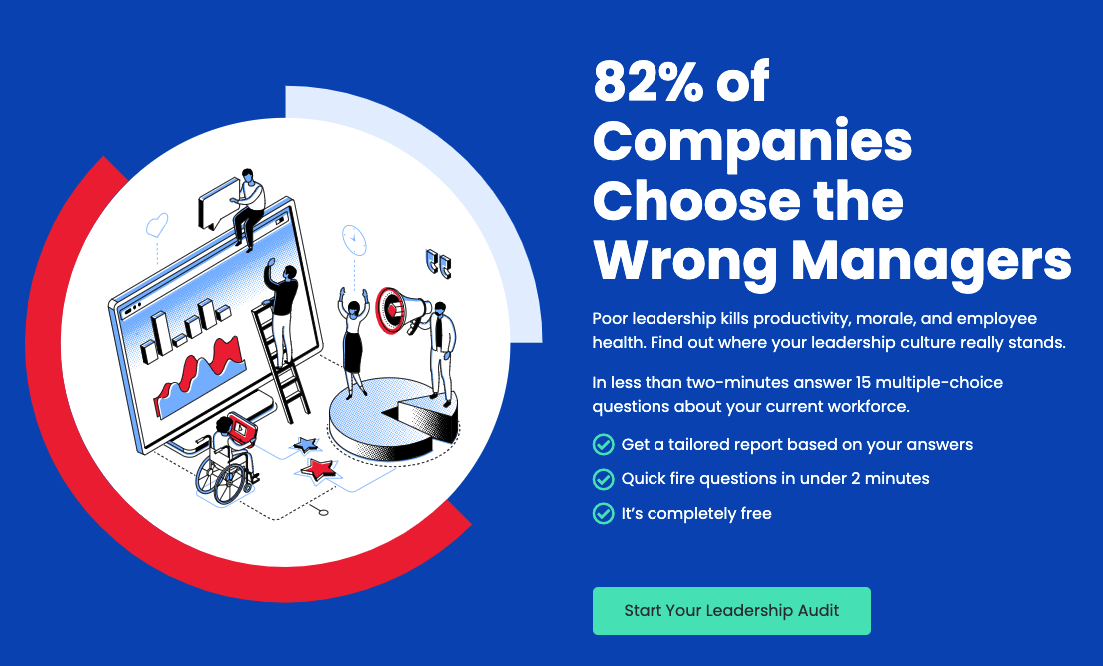As much as I don’t like it, the most popular topic about midlife is midlife crisis. I don’t like this topic because it’s mostly negative, and I’m all about thriving. If you’re new to the Midlife Fulfilled podcast here is my mission:
“The Midlife Fulfilled Podcast is your weekly guide to thriving—not just surviving—in midlife. Designed for individuals over 40, this podcast explores how to achieve fulfillment across five transformative life pillars: Health, Fitness, Career, Relationships, and Legacy to thrive in life, at work, and in leadership.”
I want you to thrive. And, if you have or are experiencing something that resembles a midlife crisis, my goal is to be a resource to enable you to thrive.
Not everyone experiences a midlife crisis. In my research, I found many articles and studies on the topic. The numbers vary from one study to the next. One study says 26%, another says between 15% and 20% and yet another says that about 25% of adults experience a midlife crisis. While it is encouraging that these percentages are relatively low, we also have to question if those surveyed were willing to admit they experienced a midlife crisis.
I recently came across a report from The Thriving Center of Psychology. Below I summarize key findings and share my thoughts and insights.
Millennials in Crisis: 81% Can’t Afford a Midlife Crisis.
The Thriving Center of Psychology conducted a survey, which involved over 1,000 Millennials aged 28 to 43. As you know, I just completed my midlife survey of people age 40 and above. So, this approach to gaining insights from a cohort of people hits home for me.
Let’s begin by reviewing the definition of millennials: people born between 1981 and 1996, making their age range between 28 and 44 years old in 2025.
The report blog post opens with the question:
What is a Life Crisis?
They define a life crisis as a period of significant anxiety and uncertainty about one’s direction in life.
The BIG finding (that is mind-blowing) is that 64% of millennials have experienced a life crisis, with 39% experiencing one in 2024.
No matter what spin you choose to put on this, 64% is a high percentage. My take on this is that millennials are dealing with a lot of pressure. If you had asked me to speculate what percentage of millennials experienced a life crisis, I would have speculated in the 30 to 40% range on the high end. That it’s 64% tells me that millennials are struggling with high expectations. And, in fact that is borne out in some of the other findings in this report.
In my Thriving in Midlife report, I didn’t ask survey takers if they had a midlife crisis. Instead, I asked how fulfilled they are in each pillar: Health, Fitness, Career, Relationship, and Legacy. I asked this question for each pillar.
Back to the Millennials in Crisis report findings.
Millennial Midlife Crisis
The report explains that 1 in 10 millennials reported experiencing a midlife crisis around age 34. It says that 81% believe they can’t afford a midlife crisis, and 58% don’t have time for one.
It goes on to say that the anticipated age for a midlife crisis among millennials is now around 44, earlier than the traditional age of 50.
My take on this is no surprise, in part because when I was in mid thirties, I was freaking out a little bit. I remember reflecting on how carefree my life was in my twenties. I was gainfully employed. I bought my first home at age 28. But, my responsibilities by my mid 30s were notably more than in my 20s. In my 20s, if I screwed up, I would only hurt myself. By my mid 30s, I had started a family and the stakes were higher.
This is my personal experience. I know that’s not necessarily your experience. My point is that experiencing life stress in your thirties, regardless of your circumstances should not be a surprise.
The only surprise to me is the expectation of having a midlife crisis at age 44 instead of at age 50. My read on this is because people’s perception of age 50 when they’re in their 30s seems very far away. And, given the stress they’re already experiencing in their 30s, they don’t think they can last to age 50 without experiencing a midlife crisis. The reality is that the opposite is true.
The older we get, the faster time seems to pass by. We blink and we are 50.
Delaying Life Milestones
The report also says that nearly half of millennials (49%) feel trapped in their current life circumstances, primarily due to financial and personal limitations. It states that 70% of millennials are not where they expected to be at this stage in their life.
This is having an impact on delayed life milestones, with 62% of millennials citing financial reasons and 30% citing mental health reasons for these delays.
The most common life milestones the report says millennials have achieved are:
- Earning a graduate degree
- Getting a credit card
- Moving out of their parent’s house
- Purchasing a car
- Getting a pet
My take on the fact that 49% of millennials feel trapped in their current life circumstances is because in many cases they are not doing better than their parents. The finding that 70% are not where they expected to be at this stage in their life bares this out. Many are struggling with student debt, or strapped by inflationary circumstances that makes home ownership difficult or impossible especially for those living in areas where home ownership is financially out of reach.
For those in the midlife age range, feeling trapped can be a reality too. We know that people often feel trapped as a caregiver for their teenage kids and their aging parents. Here are some stats on midlifers feeling trapped:
- Pew Research Center Survey (2013): According to this survey, nearly half (47%) of adults in their 40s and 50s had a parent aged 65 or older and were either raising a young child or financially supporting a grown child. This group was considered part of the sandwich generation.
- AARP Study (2020 updated in 2022): This study found that around 1 in 5 middle-aged adults (20%) were providing financial assistance or unpaid care to both an aging parent and a child.
- National Alliance for Caregiving (2020): According to this report, approximately 11% of caregivers in the United States were providing care for both an aging parent and a child under the age of 18.
According to these studies, the percentage of people “sandwiched” between parents and their own kids is fairly low. However, it’s more common than the statistics suggest. Just look around your own circle of friends and family. Personally, I experienced this when my parents entered their end-of-life season, and I was their legal guardian. My kids were in college at the time and I remember vividly what a stressful time it was for me and my wife.
Common life milestones of midlife age might include things like:
- Graduating a kid from college which implies they’re getting off your payroll.
- Celebrating a kid’s wedding.
- Celebrating the birth of a grandchild.
- Completing a core career, e.g., retiring from a specific career and transitioning to a new career.
- Taking a dream vacation that you’ve put off for many years.
- Downsizing or relocating to a dream location that you’ve put off for many years.
- If you can relate to one or more of these, you are in good company my midlife friend.
Challenges and Perceptions
The report highlights that 87% of millennials feel that older generations don’t understand the challenges they face. It discusses the lack of empathy from older generations and the criticism millennials often face regarding their lifestyle choices.
This is an interesting finding. My midlife survey asked several questions about the relationship between people in the midlife age range and people of younger generations. I won’t spill the beans on the findings to be published in my forthcoming report other than this. Generally speaking, us midlifers get along with younger generations. There is more detail on this which I will cover in my forthcoming report. The point is that we may or may not understand millennials as much as millennials would like us to, but we get along with them.
That said, the point in the millennial’s midlife crisis report is that we older generations don’t understand the challenges they face. I think that is because the challenges we faced were different. Our challenges date back to the analog age, i.e., before the internet.
Our challenges were more black and white. Some would argue they were simpler. For example, do you relocate to another city to accept the job or stay where you are? That was a black and white decision for us twenty years ago. Today, millennials face more complex challenges. They are competing in a global economy, managing relationships that are more digital than analog (face to face). If they’re dating, they compete for a mate online before they agree to meet. And, they are fed stories all day long on social media and the mainstream media about what their life should look like and when it doesn’t look like this, they feel stressed or inadequate or both. It’s no wonder that 87% of millennials feel that older generations don’t understand the challenges they face.
Redefining Midlife Crisis
The report discusses the expected experiences millennials anticipate during a midlife crisis, including career changes, attending therapy, and changing their appearance. It mentions the shift in stereotypical midlife crisis purchases, with some millennials leaning towards environmentally friendly choices like electric vehicles instead of sports cars.
The report frames this up as redefining a midlife crisis. I don’t see it that way at all. In my opinion, the only difference is the age. Millennials are thinking about these things sooner than a traditional midlifer.
The millennial life crisis report also covers.
Positive Perspective
It emphasizes that a midlife crisis can lead to positive personal growth with the right support system. It encourages individuals to seek help from family, friends, and therapists during challenging times. I couldn’t agree more.
My Midlife Thesis
Since I launched the Midlife Fulfilled podcast in February 2022 I have believed that midlife begins in our thirties. I indeed position the Midlife Fulfilled podcast for people over 40.
However, the reason I position it this way is because it’s difficult to convince someone in their 30s that they are in midlife. And, that is because the perception of midlife is 40s, 50s, and 60s. I get it. When I was in my 30s, I didn’t consider myself in midlife.
The reason I suggest that midlife begins in our 30s is because I equate our midlife seasons with “adulting.”
I was a responsible person in my 20s. I purchased my first home at age 28. But, it wasn’t until my 30s that I felt the weight of more responsibility. I felt more adult in my 30s than I did in my 20s.
While this is my experience, I suggest that I’m not an isolated case. Maybe that will be a future research project I’ll tackle. Until then, I think we can look at this research report from The Thriving Center of Psychology: Millennials in Criss, as evidence that supports my thesis, that we begin our midlife season in our 30s.
And, the significance of this is that we all want to thrive. And, whether or not we know it consciously, we want to thrive across the five pillars: health, fitness, career, relationships, and legacy.
The Cost of a Midlife Crisis for Millennials
The report mentions that millennials often can’t afford the traditional midlife crisis due to their financial constraints. Here are some potential costs and implications of a midlife crisis for this generation:
Financial Costs
- Quitting a stable job impulsively can lead to loss of income and benefits.
- Making major purchases like sports cars or luxury items to seek thrills or validation.
- Spending money on expensive hobbies, travel, or experiences to “find themselves.”
Career Setbacks
- Abruptly changing careers without a plan can stall professional growth and earnings potential.
- Gaps in employment history can make it harder to find new jobs.
- Burning bridges with employers or colleagues can damage professional reputation.
Relationship Strain
- Impulsive decisions like affairs or divorces can lead to emotional and financial turmoil.
- Neglecting partners or families during a personal crisis can damage relationships.
- Costly legal battles in case of separations or divorces.
Mental Health Costs
- Increased stress, anxiety, and depression may require therapy or medication.
- Substance abuse issues arising from attempts to cope can lead to rehabilitation costs.
With many millennials already burdened by student loans, housing costs, and lower incomes compared to previous generations, the potential financial and personal costs of a full-blown midlife crisis can be devastating. The report suggests finding more affordable ways to navigate this phase, such as through self-reflection, counseling, and making gradual changes.
Comparing Midlife Crisis Costs for Millennials vs. Traditional Ages
While a midlife crisis can be disruptive and costly at any age, the potential risks and implications may be more severe for millennials experiencing this phase earlier in life compared to those in their 40s or 50s. Here’s a comparison:
Financial Stability
- Individuals in their 40s/50s are more likely to have established careers, higher incomes, and accumulated savings/assets.
- Millennials often have lower incomes, higher debt burdens (e.g., student loans), and less financial security, making impulsive decisions riskier.
Career Implications
- For those in their 40s and 50s, a career change or break may be more feasible as they’ve likely gained experience and professional networks.
- Millennials are still in the early-to-mid stages of their careers, so disruptions can significantly set back their professional growth and earnings potential.
Relationship Dynamics
- Individuals in their 40s/50s may have more established relationships and support systems in place.
- Millennials navigating early adulthood may face greater strain on relatively new marriages/partnerships if a crisis leads to impulsive decisions.
Retirement Planning
- A midlife crisis in the 40s and 50s can impact retirement savings and planning, but there’s still time to course-correct.
- For millennials, any significant financial setbacks or career disruptions can severely compromise their ability to save for retirement.
Mental Health Resources
- Older adults may have better access to employer-provided mental health resources or insurance coverage for counseling/therapy.
- Millennials often face higher out-of-pocket costs for mental health support due to limited coverage or high deductibles.
While a midlife crisis can be challenging at any age, the potential costs and long-term implications may be more severe for millennials due to their relatively early career stage, higher debt burdens, and limited financial resources compared to older generations.
Impact of a Midlife Crisis on Physical and Mental Health
A midlife crisis can take a significant toll on an individual’s physical and mental well-being, regardless of age. However, the specific impacts may vary between millennials experiencing this phase earlier and those in the more traditional age range of their 40s and 50s.
Physical Health Impact
Millennials:
- Increased stress and anxiety can lead to physical manifestations like headaches, digestive issues, and sleep disturbances.
- Impulsive behaviors like substance abuse or reckless activities can have immediate and long-term health consequences.
- Neglecting self-care and healthy habits due to preoccupation with the crisis can contribute to weight gain, lack of exercise, and other health issues.
Older Individuals:
- Existing health conditions like high blood pressure, diabetes, or heart disease can be exacerbated by the stress of a midlife crisis.
- Physical changes associated with aging, such as decreased energy levels or mobility, may be amplified by the emotional turmoil.
- Unhealthy coping mechanisms like excessive drinking or poor diet can compound age-related health risks.
Mental Health Impact
Millennials:
- Feelings of dissatisfaction, emptiness, and existential dread can contribute to increased anxiety and depression.
- Impulsive decisions and lifestyle changes can lead to regret, guilt, and further emotional distress.
- Lack of established support systems or coping mechanisms can make the crisis more overwhelming.
Older Individuals:
- Questioning life choices and accomplishments can lead to feelings of failure, low self-esteem, and depression.
- Fear of mortality or running out of time to achieve goals can trigger anxiety and stress.
- Disruptions in relationships or family dynamics can cause emotional turmoil and loneliness.
For both age groups, seeking professional help through counseling or therapy can be crucial in managing the mental and emotional impacts of a midlife crisis. Additionally, prioritizing self-care, building a support network, and finding healthy coping mechanisms can help mitigate the potential physical and mental health consequences.
Midlife Crisis: A Disruptive Force Across Generations
While the timing and circumstances may differ, a midlife crisis can be a profoundly disruptive experience for individuals of any age. Whether experienced by millennials grappling with existential questions earlier in life or those in their traditional 40s and 50s, the emotional turmoil, impulsive decisions, and potential upheaval can have far-reaching consequences. From financial setbacks and career disruptions to strained relationships and compromised physical and mental health, the ripple effects of a midlife crisis can be severe and long-lasting. Navigating this phase with self-awareness, professional support, and healthy coping mechanisms is crucial to emerge from the crisis with renewed purpose and resilience, minimizing the potential fallout on various aspects of one’s life. Ultimately, a midlife crisis serves as a reminder that personal growth and self-discovery are lifelong journeys, requiring mindfulness and adaptability at every stage.
If you’re dealing with a midlife crisis, consider getting professional help.
Additionally, I hope the Midlife Fulfilled podcast is a motivational and informative resource for you in coping with whatever midlife challenges you may be facing. Below you can sign up to receive my Thriving Midlifer Newsletter.








